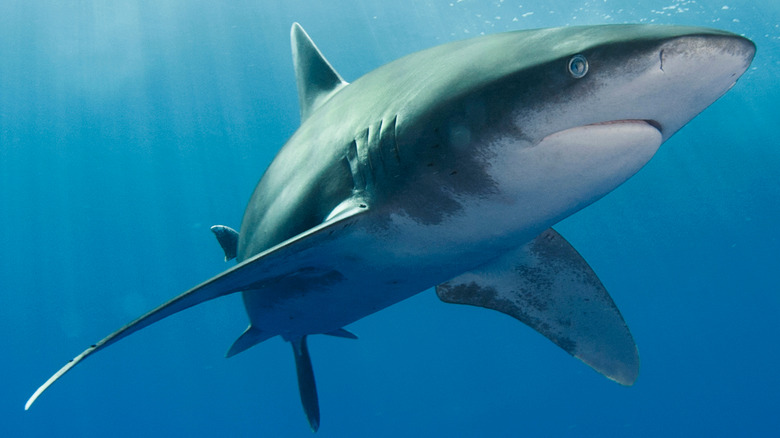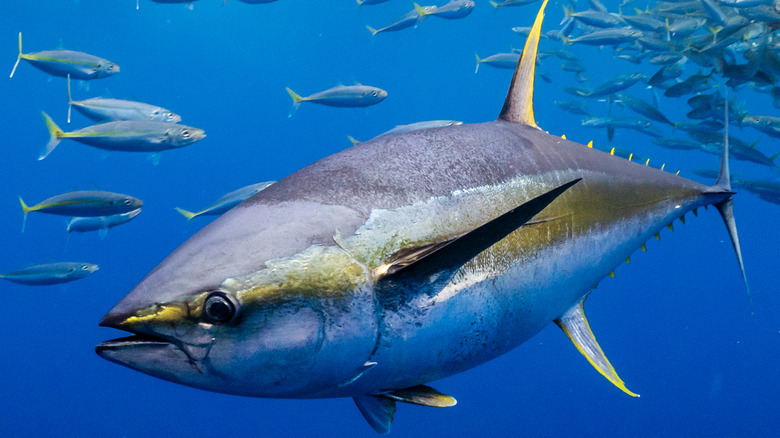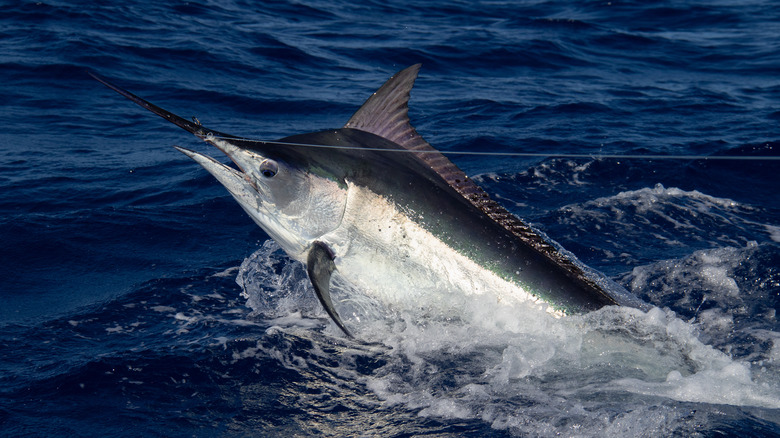Why Sharks Are In Danger Of Extinction Despite Rising Sea Life Populations
Sharks are remarkable creatures. They've played a part in some of the most iconic movies of all time, such as the "Jaws" series and the absolutely-as-great-and-not-ridiculous-at-all "Sharknado." They've existed for a very, very long time, too.
According to National Geographic, sharks have lived on Earth for over 400 million years. Per Natural History Museum in London, England, dinosaurs first evolved during the Triassic Period, up to 252 million years ago. Dinosaurs continue to have such a grip on our collective consciousness, in part, because of just how long ago they lived — and how "out of reach" they seem to us. We're privileged, then, to share the planet with far older creatures like sharks today.
Sadly, some magnificent shark species continue to suffer the perils of population decline and the risk of extinction. There is some good news for populations of aquatic creatures around the world, but some sharks aren't so lucky. Perhaps unsurprisingly, we humans are playing a very large part in the situation, for better and for worse.
Conservation efforts, and the lack thereof, are key factors
Humanity, as alarming headlines from all manner of outlets are constantly telling us, has had and is continuing to have a profound effect on the planet and its creatures. According to a United Nations report from April 2020, our industry, agriculture, and general expansion has affected three quarters of the landmass of Earth. Naturally, it's a negative impact.
It's crucial to note, though, that just as our actions can stretch, strain, and endanger our fellow species, they can also have just as strong a positive effect. In November 2022, Science News reported that the numbers of fish species such as swordfish and black marlins, which had long been declining, were beginning to trend upwards again. This has been due, the outlet reported, to careful conservation programs and management.
Tragically, per Science News, the same has not been true of some shark species, which have not enjoyed the resources and years of dedicated care.
Sharks aren't just by-catch
Via Science, the November 2022 study "Good and bad news for ocean predators" from Matthew G. Burgess and Sarah L. Becker tackles this important cross section of life on our planet. It underlines the reality that while some forms of marine life have fared better, others have not been so fortunate.
Some of these recovering stocks include the aforementioned black marlin and swordfish, while some shark species seem to have been left behind. This is a vital situation to rectify, as Maria José Juan-Jordá et al state in a related Science study called "Seventy years of tunas, billfishes, and sharks as sentinels of global ocean health." A key issue, according to the study, is that fish such as tuna are preserved primarily because they're valuable. Meanwhile, some sharks, which are not a primary target of fishing efforts but are frequently caught inadvertently along with those that are, continue to dwindle in number.
The study concludes that these shark species, which include the Oceanic Whitetip Shark, will continue their tragic slide to extinction. "Unless an effective mitigation hierarchy of management actions to reduce shark mortality is urgently implemented ... their trajectories will continue worsening in the future," the study notes. All species have tremendous inherent value, after all, and it shouldn't be measured by whether they're commercially important to us.


